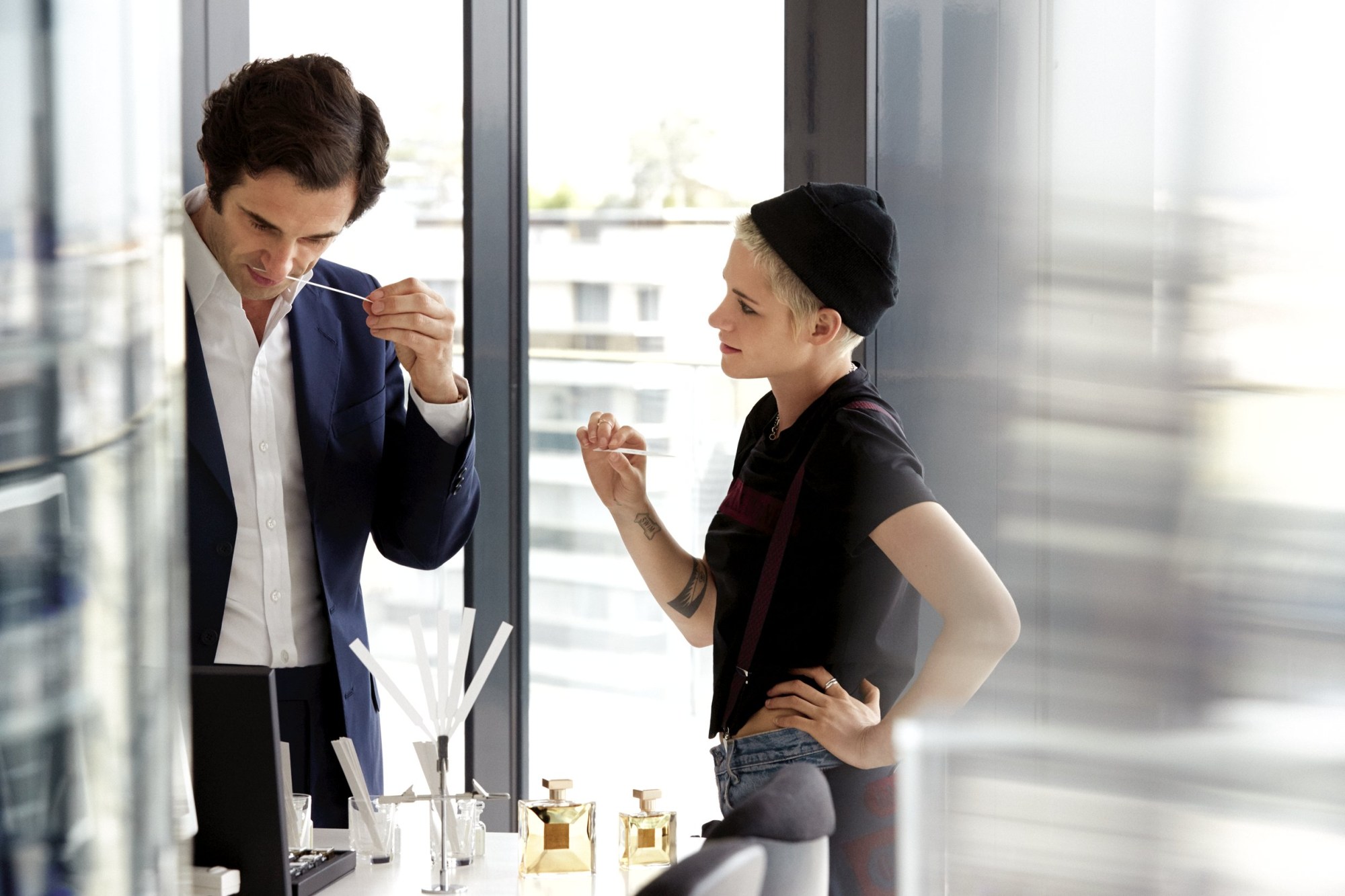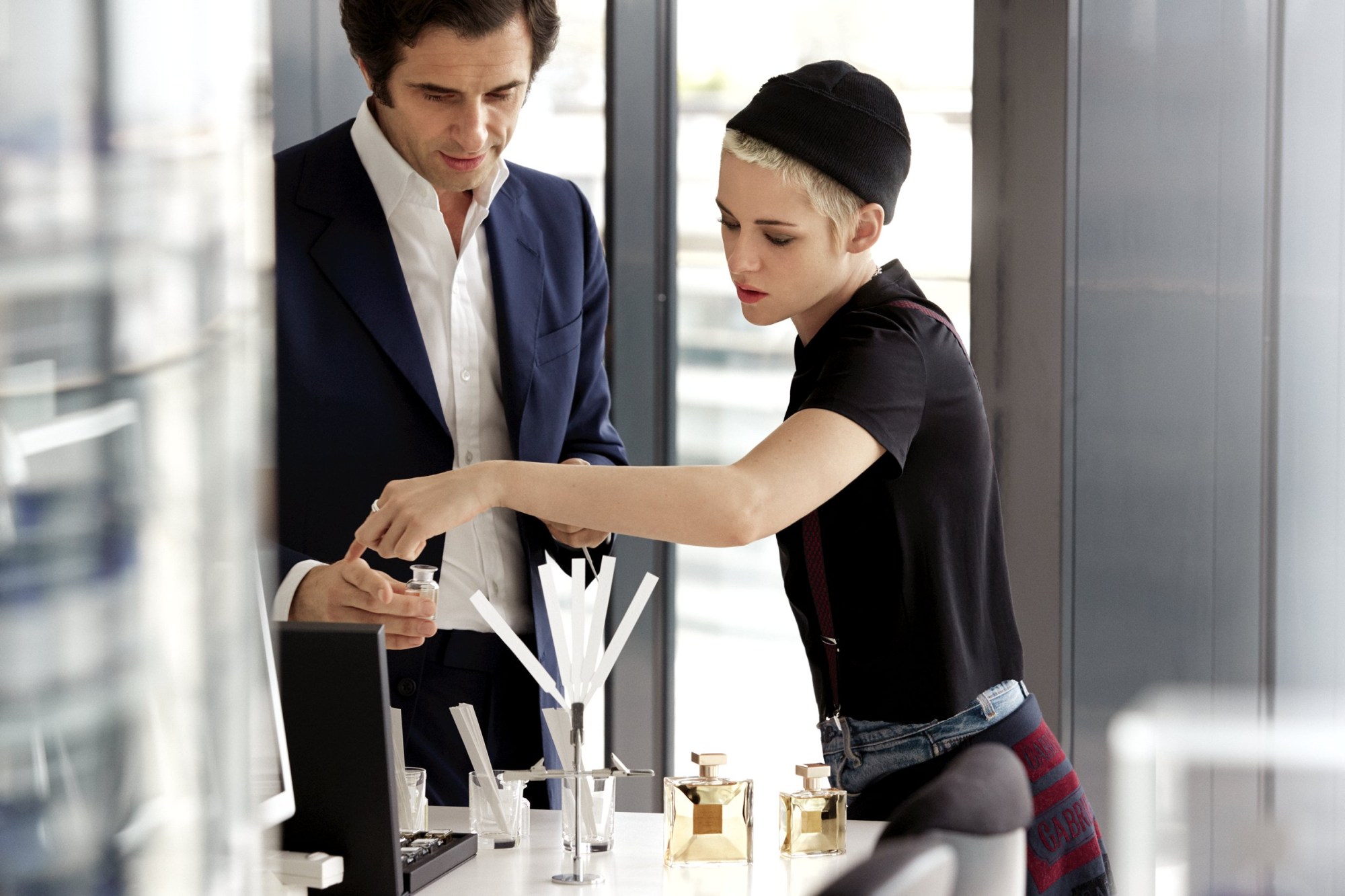You may not be on first name terms with Olivier Polge, but the chances are you are first nose terms with his work. As the master perfume maker for the house of CHANEL he is responsible for 2015’s Chanel Chance Eau Vive – and launching just last week, the house’s latest offering, Gabrielle. Taking inspiration from her true incarnation (she was known either as Coco by friends or Mademoiselle by her staff), Olivier created a dream flower consisting of ylang ylang, jasmine, orange blossom and tuberose to conjure the free spirit of the iconic, independent, defiant Gabrielle Chanel.

What is the starting point to making a new fragrance – is it visual?
People always ask me about mood boards — but I absolutely don’t work with anything visual. When you speak about fragrance you always end up describing flowers, which are a key part of our history and identity. Although it is a common thread, we didn’t really have a floral fragrance. So this is how I started to think about Gabrielle. If you speak about florals at Chanel, the most important of them is jasmine. Jasmine also means ylang ylang, and very often at Chanel we have the combination of jasmine, ylang ylang, and orange blossom. For Gabrielle we added in a touch of tuberose, which has never been a main ingredient. So this is how I start.
Chanel has grown its own flowers in Grasse for over 100 years but this was the first time you’d grown tuberose there?
Yes that’s right – all the flowers have a special story with us but this is the first time we have grown our own tuberose. It means we can extract the oils on site, and this makes a difference to the final fragrance.
Are there different ways of extracting the oils?
Yes. For example, the orange tree, is a very rich tree for us: we extract from the leaves, from the fruit and from the flower. And from the flower, we use two ways of extracting. Either with water distillation, which captures the light component, or the solvent extraction which catches the heavier and waxier aspect of the flowers.
Read: Chanel enlist their favourite actor, Kristen Stewart, again for a new fragrance campaign.
So when you’re thinking about the different components of the fragrance, when do you start thinking about the technical side of production and how this will make the final scent?
It evolves over time. At the very beginning of the process I had those ingredients in mind, but I made hundreds of experiments and tried to find… at some point I thought I would need also some orange blossom, but then it was too orange flower, and these are the little things that I spend most of my time arranging.
Having a scent that is complex and almost undefinable is such an important part of Chanel’s history — why is this?
With No. 5, Gabrielle Chanel wanted a creation, she didn’t want something that you could define. Which was the case of many fragrances of the time, you had lily of the valley, you had the jasmine from Corsica, and things like that. And she said, “No I want to compose a complex fragrance that is constructed.” She wanted a creation, she didn’t want a simple scent. So this is why Chanel will always have complex, constructed scents — they will always be this combination that you will never be able to completely characterise. Which I think is important when you come to fragrance. It might even be a way of explaining the longevity of our fragrance. Because there are always things that you cannot explain there’s such complexity that you cannot always understand completely.
Has technology changed the way you’ve put together a perfume or does it not come into it?
No, technology is very important. Because what’s interesting is when it was first made, No. 5 used the highest technology that was in place. We spent many years making sure that No. 5 never changed and we were keeping up with technology. But by putting our feet in technology, we ended up always looking for new ways of extracting. We always put special care into the distillation and the technology. Because we own the craft from A to Z. And here for example, the tuberose — this is the grade of tuberose that this company uses in perfumery. But we had the opportunity to get some grown in Grasse, in France, and we made our special extract.
Does that make it very different?
It’s as if a painter had a colour that nobody else has, which I think is something very important today.
How long does it take you from start to finish… I guess if you have to grow the flowers.
Yes.. ha ha! We started off growing this tuberose seven years ago. But the creation of the fragrance, that started about four years ago.
How do you know when you have found the final fragrance? Is there a ‘voila’ moment?
I would love if it was instant! But with fragrance we always have to be very careful. You have to wait for a few day — when you mix the ingredients they need to wait a few days to really mix together well. You know it instantly, but also little by little, the experiments being very small sometimes. Sometimes you try something so clear, that you know you have it.
The fragrance is a reflection of Gabrielle’s spirit. What were the elements that you picked out of her story to reflect in the fragrance? Do different notes reflect different aspects of her personality?
I don’t work symbolically, I thought that I recognise a common thread in the perfumes. And I think using the same thread arranged maybe differently, it would reflect something that she would have liked. I think that, in my mind, subjectively it reflects her personality…
… it does smell very exhilarating.
I think exhilarating is a good word, I think it is fresh. I think that if you want to go further with that, I think that it’s a certain type of freedom to pursue your own past. To come up with a fragrance that is fully in her spirit… I think that it’s the freedom of following your past.
How do you feel when you’re finished?
I’m glad. Really I think it’s true for everything.. Fragrance that stays on your shelf doesn’t exist. So I’m glad when it’s out there in the world.
